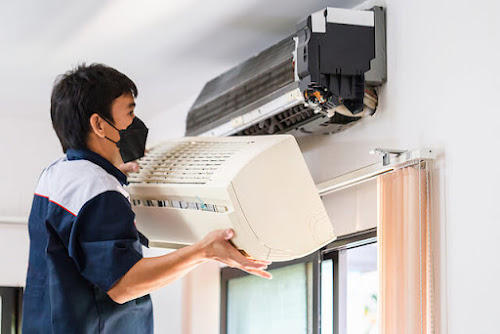The Role of Size and Placement in Air Conditioning Installation
When it comes to installing an air conditioning system, size and placement are critical factors that often get overlooked. Whether you're replacing an old AC unit or installing one for the first time, making the right decisions about size and placement can significantly impact your comfort, energy efficiency, and long-term costs. In this article, we'll explore the importance of getting these aspects right in your air conditioning installation in Melbourne.
1. Introduction
Air conditioning plays a crucial role in maintaining a comfortable indoor environment, especially during scorching summer months. To ensure your AC unit performs optimally, you must carefully consider two key aspects: size and placement. Let's dive into each of these factors in detail.
2. Choosing the Right Size for Your Air Conditioner
Factors to Consider
Selecting the appropriate size for your air conditioner is not a one-size-fits-all decision. Several factors should influence your choice:
Room Size: The size of the room you want to cool directly impacts the AC unit's capacity. A small AC in a large room will struggle to cool effectively, while an oversized unit will waste energy and money.
Insulation: The quality of insulation in your home affects the unit's efficiency. Well-insulated homes may require a smaller unit, while poorly insulated ones may need a larger one.
Climate: Consider the local climate; extremely hot or humid regions may require a higher capacity AC.
Calculating BTUs
To determine the right size, you'll need to calculate the unit's British Thermal Units (BTUs). The BTU rating indicates how much heat the AC can remove in an hour. This calculation can be complex, so consulting an HVAC professional is often the best approach.
3. Placement Matters: Where to Install Your AC Unit
Interior vs. Exterior Placement
The placement of your AC unit can significantly impact its efficiency. You have two primary options: interior and exterior placement.
Interior Placement: Installing the unit inside the house offers better aesthetics and protection from the elements. However, it requires proper planning for ductwork and ventilation.
Exterior Placement: Placing the unit outside minimizes indoor space usage but can expose it to harsh weather conditions. Adequate shelter and proper clearance are essential for exterior units.
Proper Clearance and Airflow
No matter where you install your AC unit, it needs adequate clearance for optimal airflow. Poorly placed AC units can lead to:
- Reduced efficiency
- Increased energy consumption
- Potential damage due to debris or weather exposure
4. Importance of Professional Installation
While some homeowners might be tempted to install an air conditioner themselves, it's often best to hire a professional HVAC technician. Here's why:
Complexity: Air conditioning installation involves electrical work, refrigerant handling, and more. Professionals are trained and certified to handle these tasks safely.
Warranty: Many manufacturers require professional installation to maintain the warranty on your unit. DIY installation may void your warranty.
Optimal Performance: HVAC experts have the knowledge and experience to ensure your AC unit operates at its best, with correct sizing and placement.
5. Energy Efficiency and Cost Savings
Proper sizing and placement of your air conditioner lead to better energy efficiency and long-term cost savings.
Lower Energy Consumption: A well-sized AC unit doesn't overwork, reducing energy consumption and utility bills.
Extended Lifespan: Proper placement ensures the unit functions smoothly, leading to a longer lifespan with fewer repair costs.
6. Conclusion
In summary, size and placement are crucial elements in the successful installation of an air conditioner. Choosing the right size based on factors like room size, insulation, and climate, and ensuring proper placement with adequate clearance and professional installation, can make a significant difference in your comfort and energy efficiency. Don't cut corners when it comes to these essential decisions.
Get Access Now: Click Here to Learn More
Frequently Asked Questions (FAQs)
1. What happens if I choose the wrong-sized air conditioner?
Selecting the wrong size can lead to inefficiency, high energy bills, and discomfort. It's best to consult an HVAC professional to determine the right size for your space.
2. Can I install my AC unit without professional help?
While it's possible, professional installation is recommended to ensure safety, warranty validity, and optimal performance.
3. What is the typical lifespan of an air conditioning unit?
With proper care and maintenance, AC units can last 15-20 years or more.
4. How much clearance does an exterior AC unit need?
A typical recommendation is about 2-3 feet of clearance to ensure adequate airflow and maintenance access.
5. What can I do to improve the efficiency of my existing AC unit?
Regular maintenance, such as cleaning or replacing filters and sealing any leaks in your home's insulation, can help improve efficiency.

Comments
Post a Comment